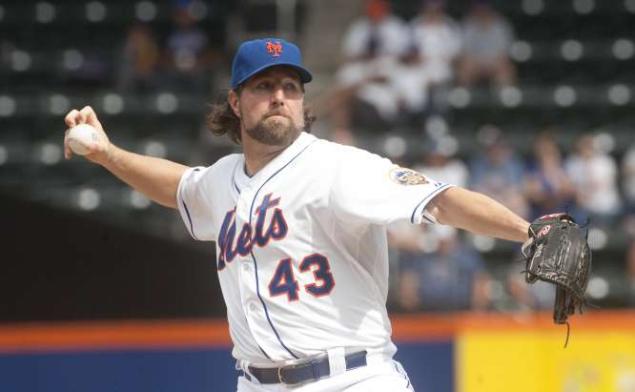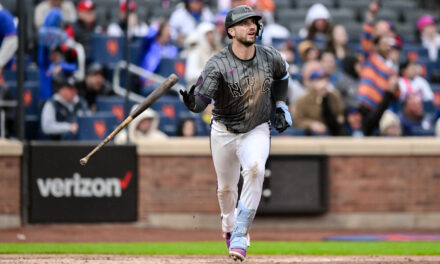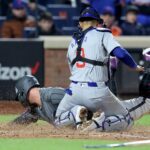 The latest speculation has the Mets shopping R.A. Dickey for a power hitter, but I wonder if it would really improve them, both in 2013 and/or the future.
The latest speculation has the Mets shopping R.A. Dickey for a power hitter, but I wonder if it would really improve them, both in 2013 and/or the future.
I don’t know what the Mets could actually get for Dickey, because there are some red flags for a team interested. Let’s face it, he’s a knuckleballer and there’s still a stigma that it’s a gimmick pitch hard to control. And, last year was his best at age 38, and want to bet some teams believe that to be a fluke?
- It’s not fair, but such thinking does exist.
Another factor is that Dickey is not signed beyond 2013. Any team that deals for him would have to be given an opportunity to negotiate with him, and if he’s determined to be a free agent that won’t be a breeze. I also don’t see many teams trading a young slugger for a 38-year-old pitcher, who, before last season was a journeyman.
If Dickey is dealt – and last year wasn’t a fluke – then the Mets’ rotation would be considerably weaker. Johan Santana broke down at the end of last year and I’m not counting on him pitching to the worth of $25 million. Jon Niese is a No. 3 starter until he proves otherwise and if Santana falters he would move to No. 1. Dillion Gee is coming off surgery and Matt Harvey has a limited resume.
The rotation, save a healthy Santana, is far more potential than proof.
If Dickey is brought back and duplicates last season, I would argue he is more valuable than a power hitter to the Mets. With a gaping hole in their rotation, would a hitter really make that much of a difference?
And, should the Mets trade Dickey, then the Mets would have to replace him, either this coming season or next.
There are three ways to build a team: 1) the farm system, 2) trades, and 3) free-agency. GM Sandy Alderson is saying the Mets are more prone to build through trades, but realistically, do they have much to offer outside their young pitching prospects, Harvey and Zach Wheeler?
There is Ike Davis, but why would they trade a 32-home run bat even up for another hitter, especially considering Davis’ age and reasonable salary?
I’m of the belief it is more important to build a team around pitching than it is power. Just look at the 2010 and 2012 San Francisco Giants, and compare them to the Yankees of the past three seasons. History is full of examples of power laden teams that hibernate during the playoffs.
The wild card in how the Mets build is their finances. If they keep their rotation intact and add an outfielder in free-agency that would be their fastest route to competitiveness. Assuming, of course, if they can get anybody to come here.













